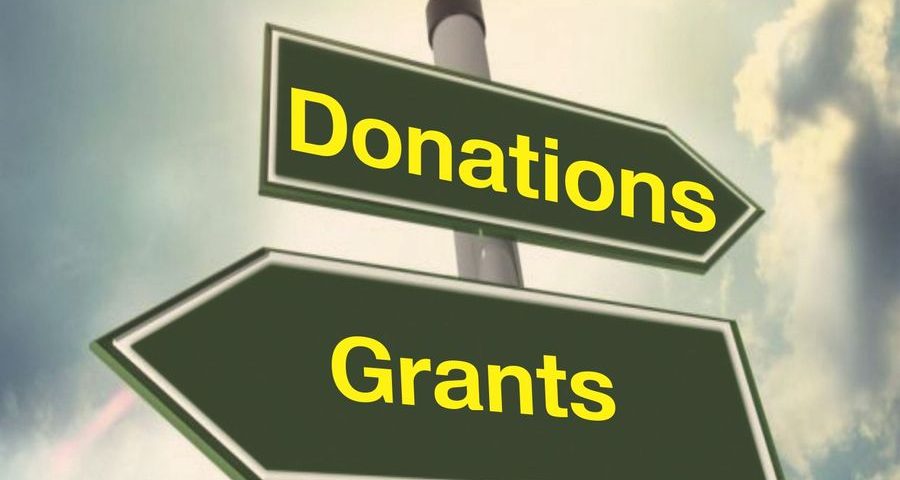
Marita Haibach: Don’t be afraid to think big
December 8, 2021
Patrick Gibbels: The French Presidency of the EU – what’s in store?
January 12, 2022With nonprofits often receiving support from public funds, many studies have attempted to uncover whether there’s any impact on private philanthropic donations. Managing Director of Cultural Philanthropy, Giampiero Giacomel explores their findings.
As the pandemic took hold and many fundraising channels became inaccessible, public funding became ever more important, with nonprofits turning to national governments and calling for their support. While public funding is often desperately needed, could such funding run the risk of displacing future philanthropy?
Academics and practitioners have explored the impact of public funds on private contributions from numerous angles and across various disciplines for decades. The majority of these philanthropic studies focus on North America, Europe and Oceania. And, despite the hundreds of studies done, whether public funds displace or encourage private philanthropic donations is still far from clear.
Today’s studies aim to inform fundraisers and grant-makers of the current relationship between the two, and to uncover how to diversify nonprofits’ income without jeopardising one over the other.
Deciphering the impact
The impact of public funds on private contributions has been studied from two perspectives: donor behaviour and that of the institutions themselves. Scholars refer to these two perspectives as direct and indirect crowding effects.
Direct crowding effects relate to the theories of pure and impure altruism (Andreoni, 1990). Pure altruism for example would be the act of giving for the sole reason of responding to a need. If this need is answered by others (such as through the giving of public grants), pure altruists move their gifts elsewhere. In comparison, impure altruism is the act of giving motivated by some level of personal emotional return, which means the impure altruist will continue to support an organisation, even if its need has been resolved by someone else.
Indirect crowding effects are those related to organisational choices made as a result of having core and project costs covered. Here one must mention that fundraising can be seen as a necessary evil (Andreoni and Payne, 2009) by many nonprofits. Organisations consider fundraising as something they have to do, rather than something they want to do.
In addition, donors have been educated that money spent in fundraising is somehow “wasted” and that fundraising costs should be kept to a minimum. Furthermore, fundraising costs affect charity ratings, and as a result many organisations stop their efforts once their financial need is covered to keep fundraising costs as low as possible.
Conflicting findings
Literature seems to disagree on the effects of public funds on philanthropic donations. Some findings demonstrate strong crowd-out effects whereas others show exactly the opposite (Bolton and Katok, 1998; Andreoni and Payne, 2009; Kim and Ryzin, 2014).
Given that it seems unclear, many authors have hypothesised that positive and negative crowding effects could coexist, and, that this coexistence might be determined by variables such as the type and prestige of public grant-makers, (Zhao and Lu, 2018; Alonso, et al., 2019), the age of the organisation (Heutel, 2014), or the amount of funds provided by public bodies (Brooks, 2000; Borgonovi, 2006, Hladka, 2017).
The inclusion of these variables has made the scenario a little clearer. In general, it is safe to assume that positive and negative crowding effects coexist and, in general, that there is always an initial crowd-in effect that – at some point – slows down, and stops, before the crowd-out effect begins.
Conclusions
This change in direction depends on the variables mentioned above but it is safe to say that the longer a nonprofit receives public funds, the higher the chance of experiencing crowd-out effects. Conversely, newly established nonprofits experience higher crowd-in effects than long-established organisations.
Crowd-out effects are stronger for donors with low commitment or for those receiving material benefits in return. Indeed, no crowding effects are seen with fully engaged donors.
When the ratio between public funds and donations reaches 10,500:1 the organisation is likely to experience donor displacement. Regional and international grants have a greater chance of displacing donations than national government funds.
While philanthropic donations can be displaced by public funds, this is less apparent for other types of private contributions, such as corporate sponsorships, and sales.
Andreoni and Payne (2009) have attempted to decipher whether direct and indirect crowding effects coexist and what role they individually play. Wit and Bekkers (2016), and, Lu (2016) – in relation to direct crowding effects – determined that public funds generate some minor crowd-in effect.
Essentially, every 1,000 EUR of public grants generates an increase of 45 EUR in private donations. However, indirect crowding effects – as a result of public grants – displace 66% of all philanthropic donations (Andreoni and Payne, 2009).
In other words, nonprofits may stop fundraising activities when they see that their financial needs are covered. This has a detrimental effect on the performance of the sector as a whole, and, on the financial sustainability of organisations that literally let donors go if they receive governmental support.
Governments should take this very seriously if they want high achieving and dynamic nonprofits. Public grants are urgently needed, but they can cause more harm than good in the medium and long term if the impact of potential displacement is not fully considered.
One way to resolve this, highlighted by Peng and Liu (2020), is to launch public grant programmes with clear matching gifts requests, incentivising organisations to continue their own fundraising and donors to continue giving, alongside governmental support.
About Giampiero Giacomel

Giampiero Giacomel, Cultural PhilanthropyAbout Giampiero Giacomel
Giampiero Giacomel is Managing Director of Cultural Philanthropy, a private limited company working in consultancy, research and education in the field of fundraising and philanthropy. He has cross-national experience in fundraising and is Director of a Master in Fundraising in Italy. He has concluded academic studies in law, European policies, fundraising and human rights in Italy, and, in the UK, he graduated in philanthropic studies at the University of Kent and is currently PhD candidate in CSR, Social Enterprise and philanthropy.




